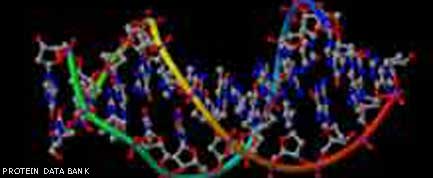
Several companies now claim that for as little as $100 and a swab of the inner cheek, they can reveal a person's family tree and ancestral homeland.
But more than a dozen scientists from various backgrounds say such "recreational genetics" or "vanity tests" have significant scientific limitations and rely on misconceptions about race and genetics.
"If a test-taker is just interested in finding out where there are some people in the world that share the same DNA as them, then these tests can certainly tell them that," said Deborah Bolnick of the University of Texas in Austin. "But they're not going to tell you every place or every group in the world where people share your DNA. Nor will they necessarily be able to tell you exactly where your ancestors lived or [what race or social group] they identified with."
Bolnick and the other researchers expressed present their analysis in the Oct. 19 issue of the journal Science.
A popular trend
More than 460,000 people have purchased genetic ancestry tests in the past six years, according to a recent study. That trend is likely to increase, scientists say, fueled by hyped promises from companies selling the tests and by news stories about test-takers such as Oprah Winfrey learning she is Zulu or a Floridian accountant being told he descended from the Mongolian warlord Genghis Khan.
But such results are beyond the capabilities of current tests, scientists say. In the Genghis Khan example, the company that performed the test, Oxford Genetics, did not have DNA samples from the Mongol warlord himself because his tomb has never been found.
Get the world’s most fascinating discoveries delivered straight to your inbox.
Instead, the company found that the accountant had a set of genetic markers very common in people from Eurasia, and particularly in the areas where Genghis Khan conquered. The rest was inference.
"There's nothing to actually tie it to him," Bolnick said. "It could have been some other guy alive at the time who slept around a lot."
Hyped promises
Most genetic ancestry tests involve the analysis of small snippets of DNA passed down only through the mother, or only through the father. These tests can identify related individuals who share a common maternal or paternal ancestor, and even where in the world people with your genetic signature live today.
A common misconception about genetic ancestry testing, Bolnick said, is that it can reveal information about an individual's ancestry. It cannot.
"People assume these tests can tell you your race or ethnicity and reveal exactly where your ancestors lived or exactly what social group they identified with," she said.
Recently, the Web site Ancestry.com rolled out a new service that allows people to mail in DNA samples to see if they have "genetic cousins" in the company's database and reveal their ancient origins.
One problem with this approach, scientists say, is that because such tests analyze less than 1 percent of a person's genome, they will miss most of a person's relatives.
"If you take a mitochondrial DNA test, you learn something about your mother's mother's mother's lineage," Bolnick said. "If you go back 10 generations, that's telling you something about only one out of more than a thousand ancestors."
Such tests also cannot account for recent migrations of peoples from their ancient homelands. "Present-day patterns of residence are rarely identical to what existed in the past, and social groups have changed over time, in name and composition," the scientists write.
Bolnick and her colleagues encourage professional genetic and anthropological associations to issue policy statements about genetic ancestry testing that urge either caution on the part of consumers or set limits on the claims companies can make.
"Personally, I would like to see some independent source of information about these tests so consumers could go somewhere besides the companies themselves and get information about what the test can and cannot tell them," Bolnick said.
- Top 10 Things You Didn't Know About You
- Genes: The Instruction Manuals for Life
- Home DNA Tests Not Always Science-Based


